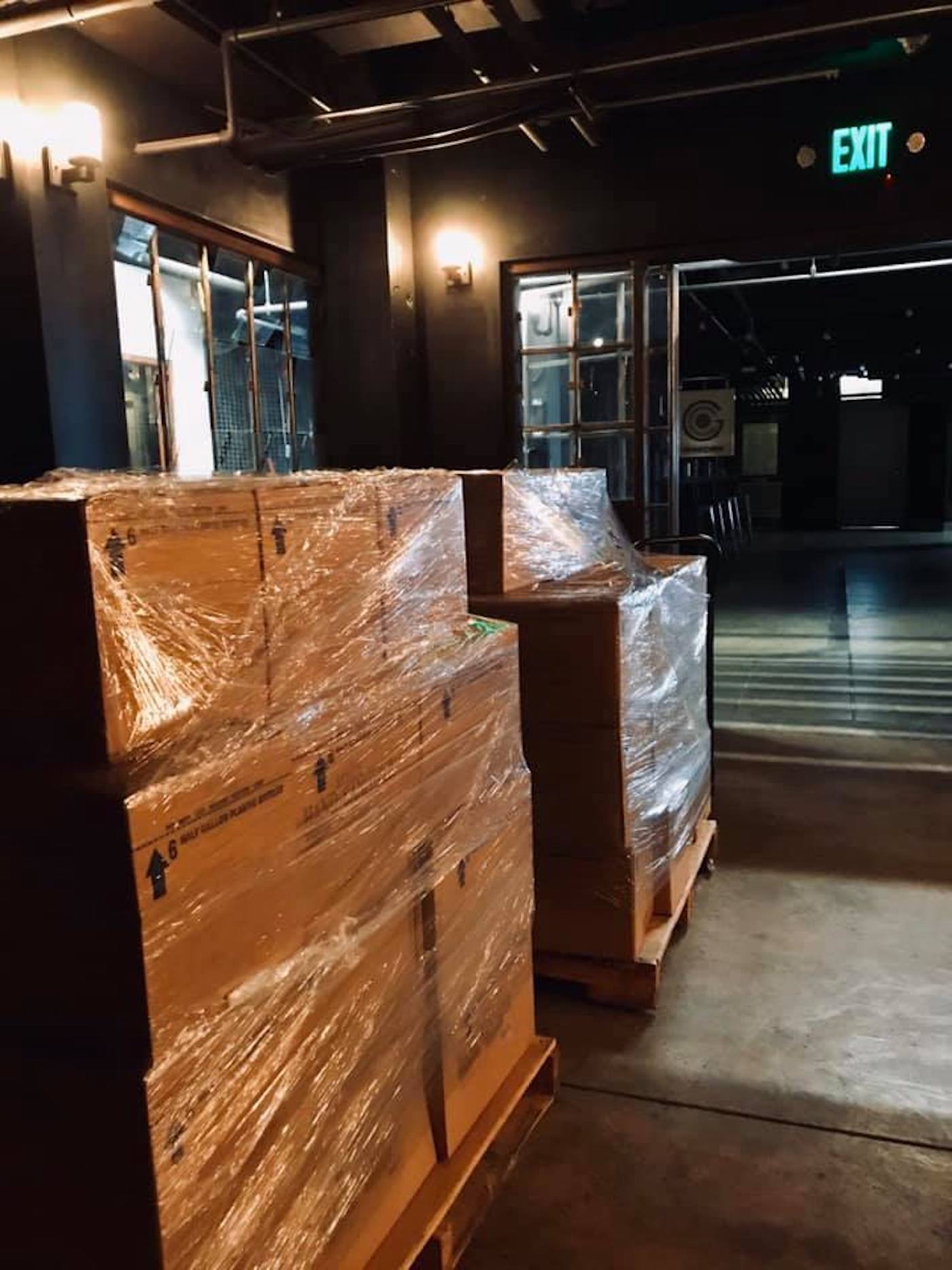Ferino Distillery, which specializes in making its Cannella Cinnamon Cordial (seen far left), is stuck with thousands of excess bottles of sanitizer leftover from the pandemic’s early stages last year. Courtesy Photo
 In this April 2020 photo, boxes of hand sanitizer are wrapped up and ready to be shipped from Seven Troughs Distilling Co. in Sparks.
In this April 2020 photo, boxes of hand sanitizer are wrapped up and ready to be shipped from Seven Troughs Distilling Co. in Sparks.